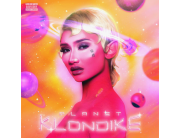Beauty sells…literally. The beauty industry’s multi-billion dollar business is valued at over $500B, and is forecasted to continue growing rapidly. It’s a big business, and the spike of new makeup and skincare brands definitely show what society prioritizes. With tutorials and trends dominating the space of social media, the future of beauty is only up from here. And as a beauty lover, I’m here for it.
Living in a visual world, everyone wants to look good — me included. You know what they say: “when you look good, you feel good.” And although it doesn’t (and shouldn’t) determine our competence and worth, turning to skincare and makeup brands for a hand in our physical appearance, plays a huge role psychologically.
At the same time, celebrity-owned and backed beauty brands have been huge contributors to the industry over the last decade. What traditionally was an industry of brands with star-studded endorsements, has shifted to a market with more and more collaborations and brands launched by celebrities. Think Fenty Beauty, Kylie Cosmetics…the list goes on and on. From securing spokesmodel gigs in the 00’s to now calling the [beauty] shots, we’re seeing more celebs create their own lanes rather than uphold the voice of an endorsement-seeking company. And many of them are kicking butt.
Celebrities are attracting beauty buyers and influencing what consumers want, and although not inherently problematic, it’s important to ensure that your dollars aren’t being taken advantage of. With social media and huge audiences combined, celebs have even more control over their narrative and authenticity, allowing followers to feel more connected to them. Which, then, turns followers and fans into customers. And many of these celebs have products that sell out within minutes of launching. So, the products must be groundbreaking, right? Not necessarily.
Some of us are going to support our favorite celebs no matter what. Let’s be honest, I’ll buy from Fenty Beauty if I can look stunning like Rihanna. But, if you’re looking for quality or results-driven products, there are some things you should consider of all beauty brands, celebrity-owned or not.
Bradley and Jonina Skaggs, of the branding and digital agency Skaggs Creative weigh in on the effects of celebrity-backed products on consumer behavior. Their clientele includes Morphe, Charlotte Tilbury, DKNY, Tweezerman, and more, and Skaggs Creative is dedicated to helping brands (big and small) be seen, heard, and known. We talked with Bradley Skaggs (Partner and Creative Director) and Jonina Skaggs (Partner and Art Director), and they believe that the market shift has resulted in consumers today having become somewhat docile but without loyalty.
Keep reading for the highlights from our chat!
What are you seeing from celebrity-backed and owned brands in today’s beauty market?
Bad and/or cheap product formulations that will be marketed as a prestige or premium product.
Why is it important to hold celebrity and non-celebrity owned brands to the same standard?
Why shouldn’t we? The end user is faced with the same possible side effects and reactions as non-celebrity owned, so there shouldn’t be any exceptions. The same safety standards need to be met regardless of who is behind the product.
What should we as consumers be on the lookout for?
Always look at the ingredient list before buying a product, celebrity backed or not. Celebrity backed products tend to be lesser quality – especially when it comes to fragrances (Perfume and Eau De Toilette) and scented candles.
In today’s digital age, authenticity and visual results seem to drive buying decisions. Does this impact beauty brands at all?
It can, especially if a brand is run by ‘looks’ only and is portraying luxury. But then in reality the formulation of the product is not premium and is using ingredients that can be harmful to the consumer.
How does influencer marketing affect the celebrity-endorsed competition?
Even influencers reach a point where they become celebrities and often then become more focused on their own brand rather than those they are representing. It’s a slippery slope. Generally, influencer marketing can be more effective as the perception of a one-on-one relationship with them seems more realistic than with a celebrity.
What are your thoughts? Share with us below!
Photo Credits: Cottonbro from Pexels







Add Comment